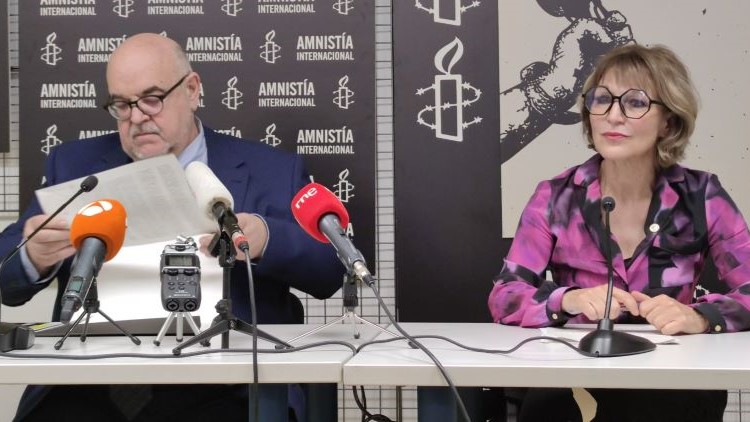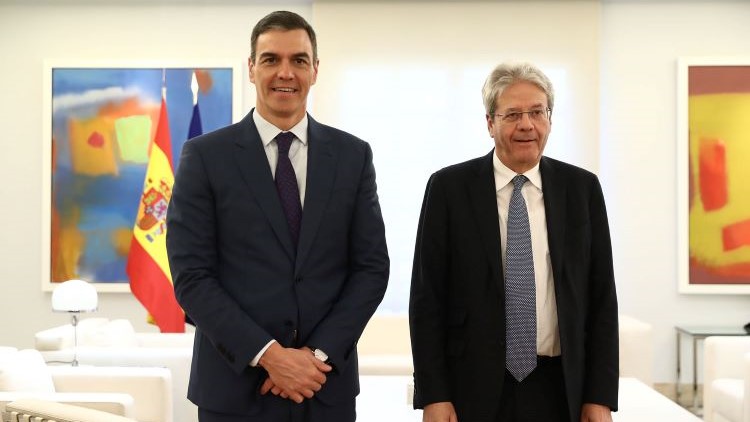Eduardo González
The Amnesty International delegation that visited Spain this week has asked Spanish “political actors” to “put aside their differences” and promote “a common agenda to confront the risk of genocide in Gaza.”
The Amnesty International delegation, led by its secretary general, Agnès Callamard, and by the director of the organization in Spain, Esteban Beltrán, traveled to Spain this Monday to present its agenda for the XV Legislature, in a document titled Vision and Courage for advance human rights.
In these three days, they met with the second vice president of the Government and Minister of Labor and Social Economy, Yolanda Díaz; the Ministers of the Interior, Fernando Grande-Marlaska; and from Foreign Affairs, José Manuel Albares; the deputy secretary general of the Popular Party, Esteban González Pons; and civil society organizations, especially on migration, asylum and freedom of expression.
“The suffering of the population in Gaza deserves that all political actors in Spain, and in the world, put aside their differences and agree on a common agenda, based on international law and human rights to confront the risk of genocide in Gaza,” declared Agnès Callamard at the end of the visit.
The organization has assessed “positively” the measures already taken, such as support for UNRWA, the investigation into Gaza by the International Criminal Court and the complaint of genocide before the International Court of Justice. However, he considers that Spain must make “the temporary suspension of arms shipments to Israel permanent” and promote, within the EU, the prohibition of the import of products from settlers from the occupied Palestinian territories and the review of the cooperation agreement between Israel and the EU, among other measures.
During the meeting with Grande-Marlaska, Amnesty International asked that the recommendations of the State Attorney General’s Office be complied with to eliminate the obstacles that prevent sub-Saharan people from obtaining international protection at the border posts of Ceuta and Melilla and requested, along the same lines of the Ombudsman, to put an end to “the practice, contrary to international law, of summarily expelling, collectively or individually, migrants and asylum seekers to Morocco.”
Likewise, it warned that this legislature “carries up a terrible episode from the previous one: the Melilla tragedy of June 2022, one of the biggest human rights stains on Spanish democracy.” “Amnesty International regrets that in the meeting with Grande-Marlaska the minister did not make a real commitment to independently investigate what happened, as well as for human rights to play an important role in relations with Morocco,” the organization continued. “The Spanish authorities, as well as the Moroccan ones, must assume their responsibility and stop frustrating attempts to find out the truth of what happened in Melilla, so necessary to guarantee justice for the victims and their families,” Callamard declared.







